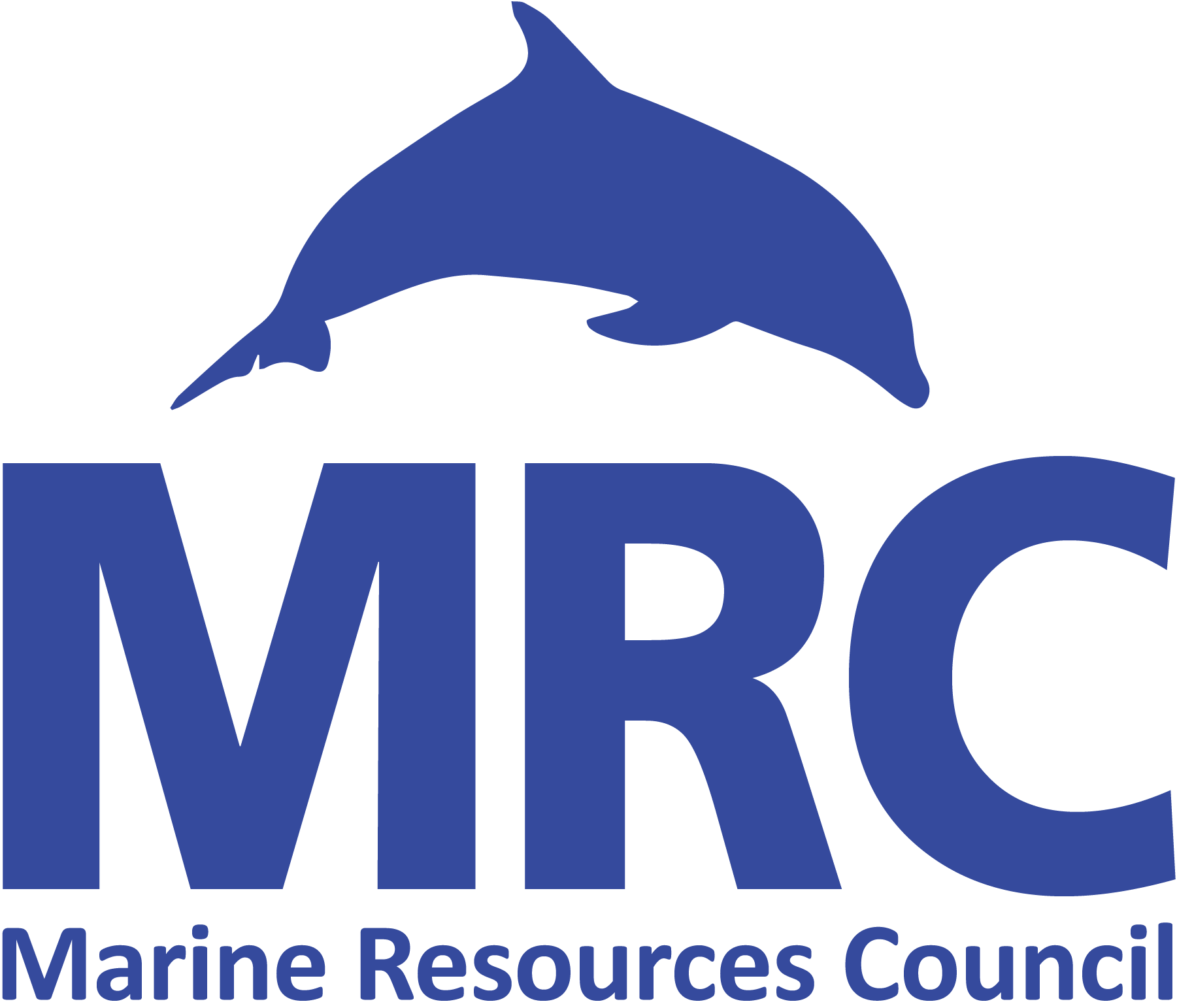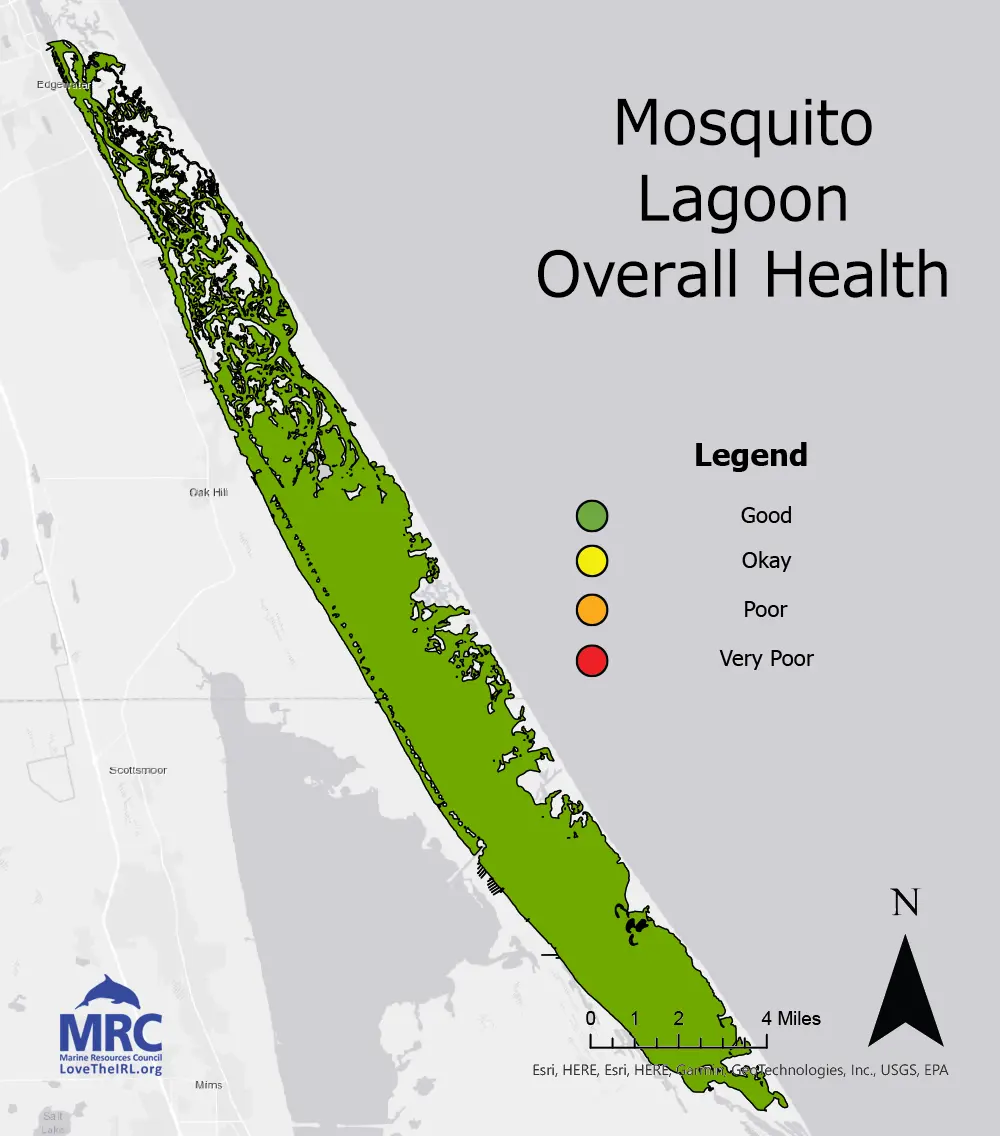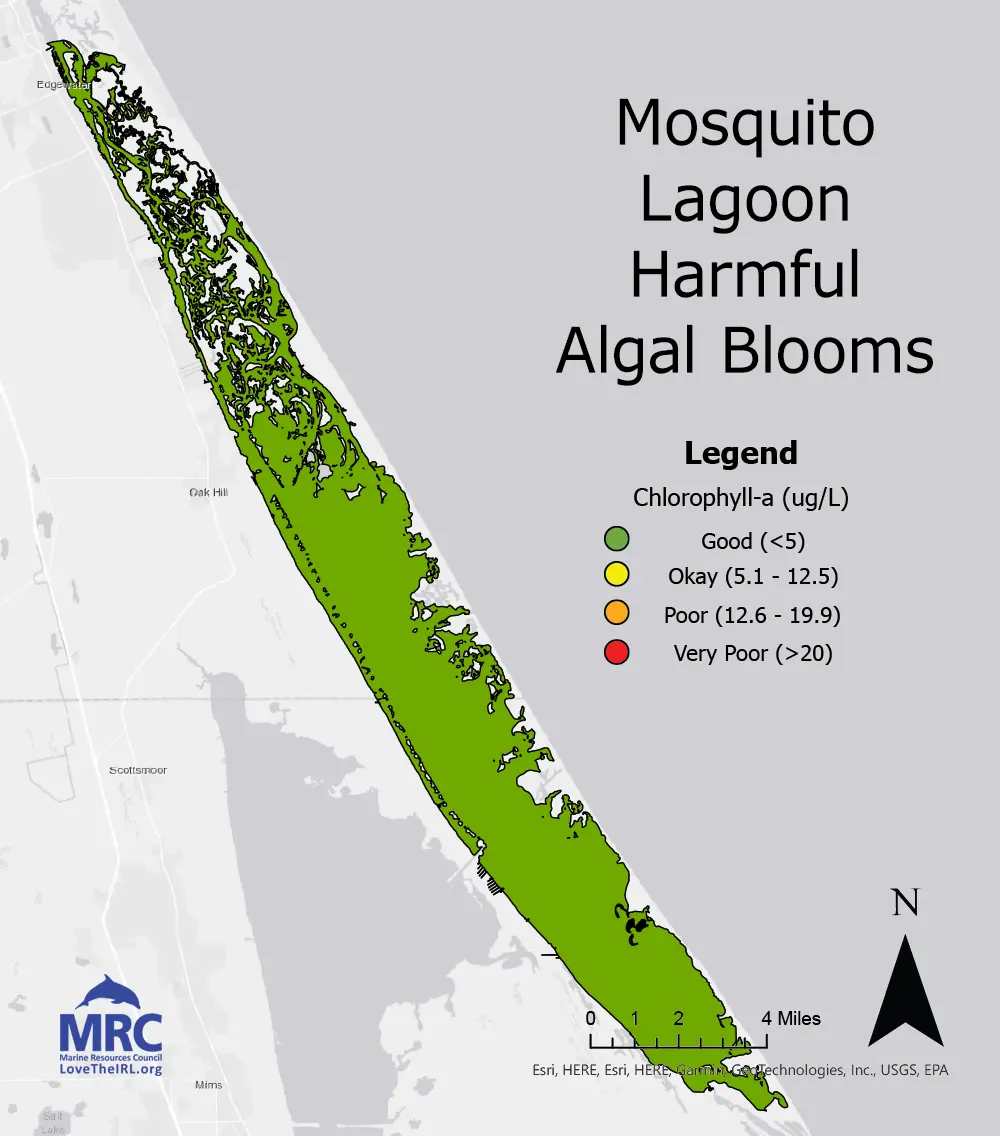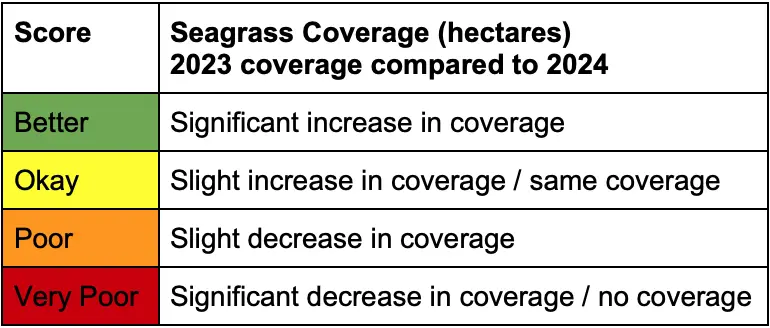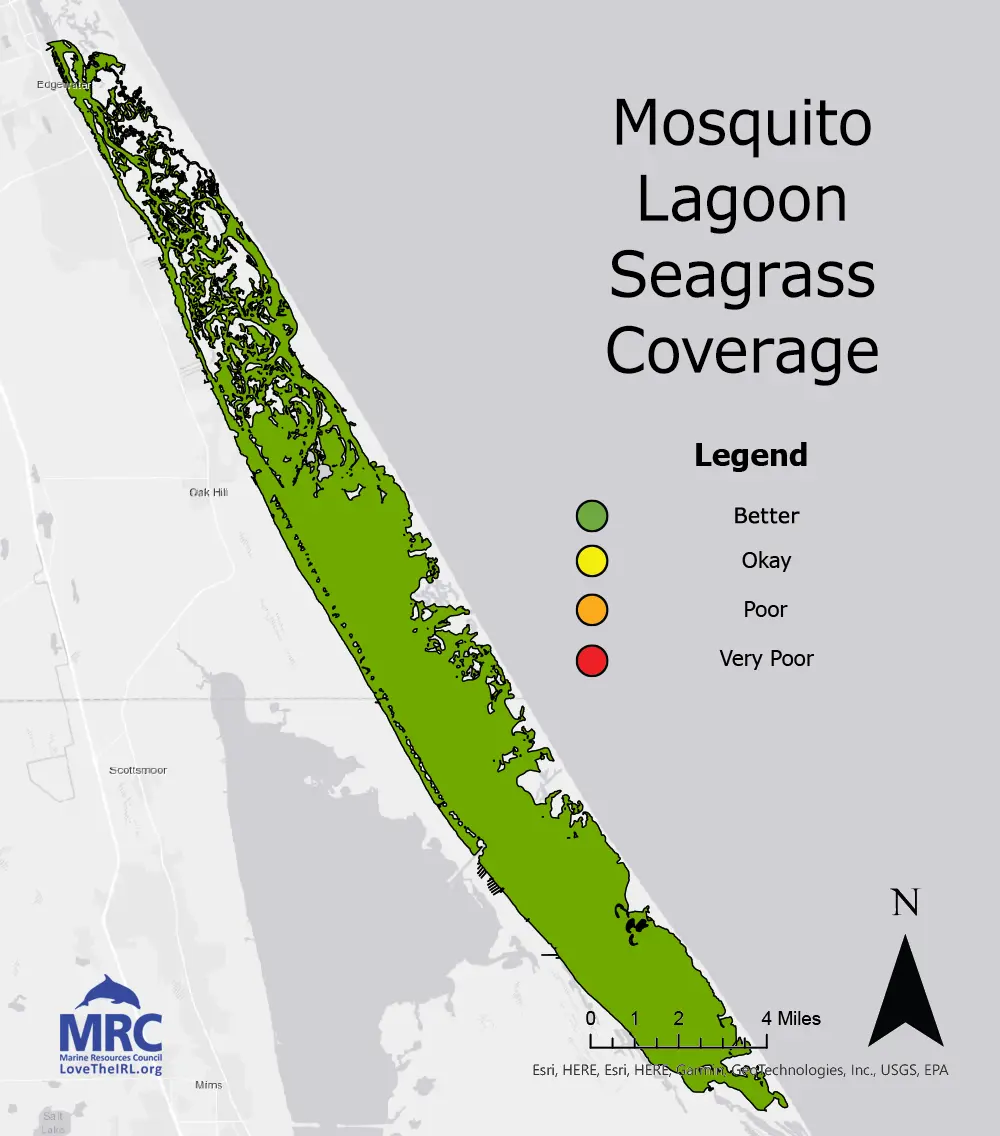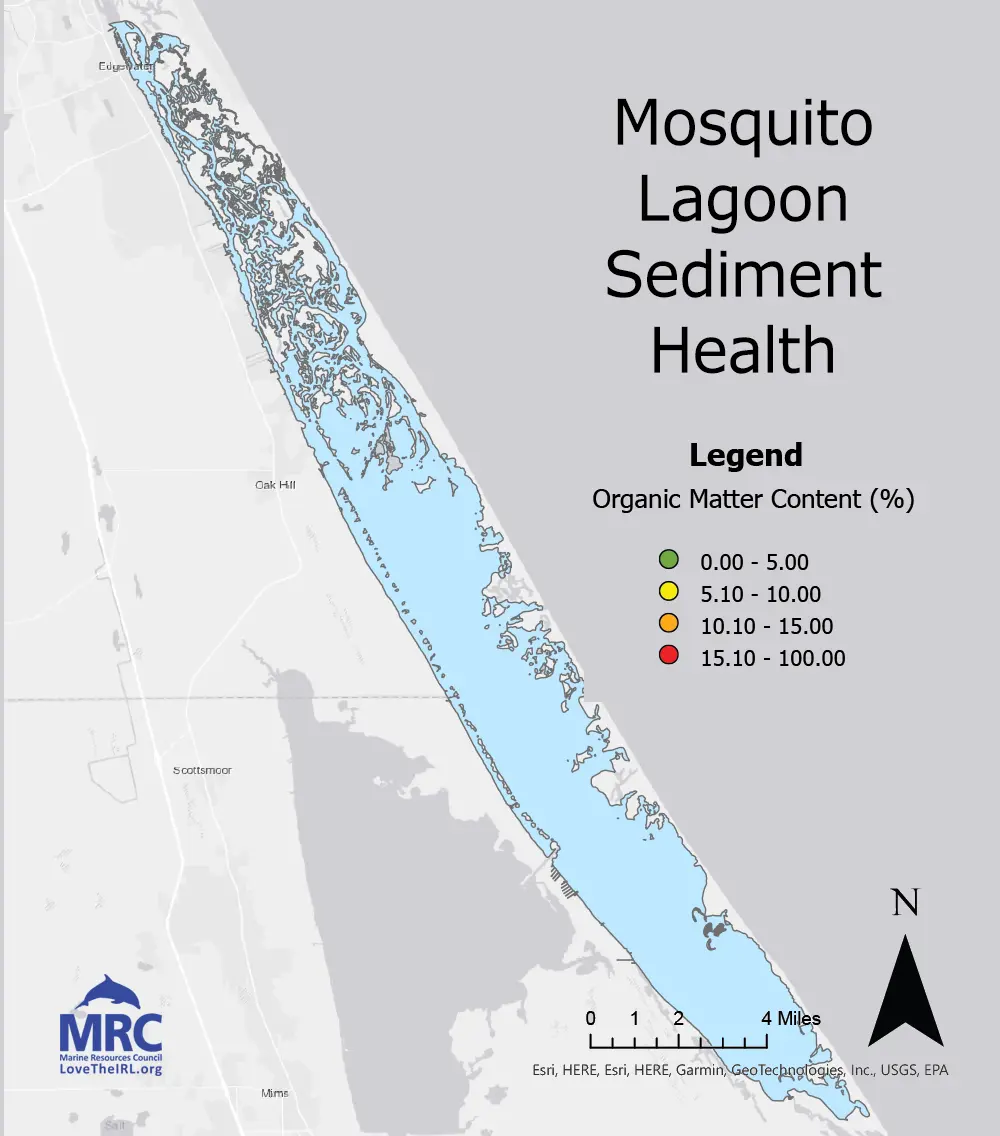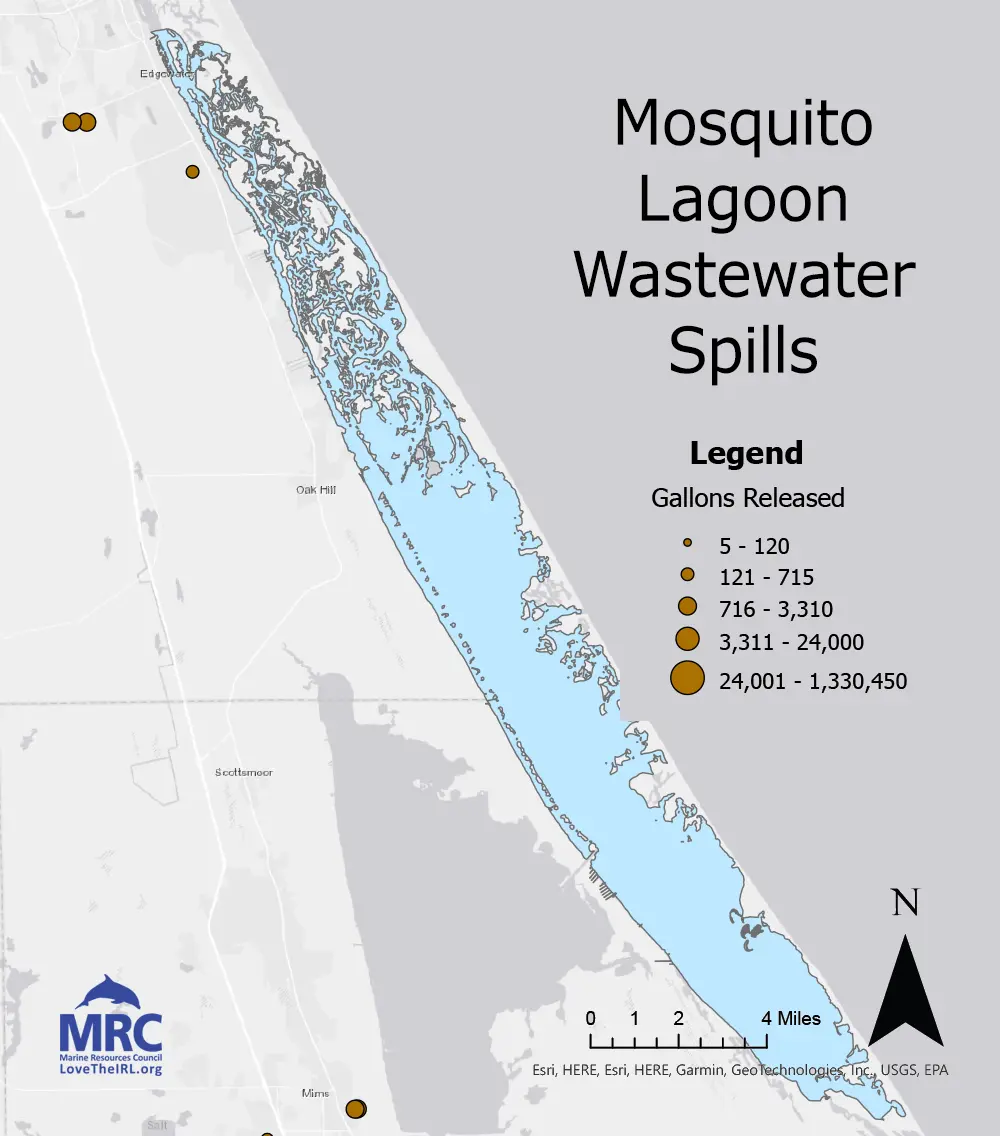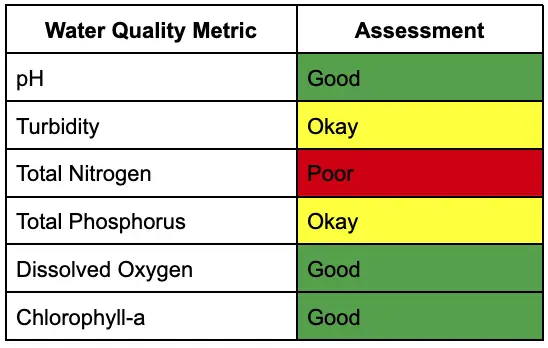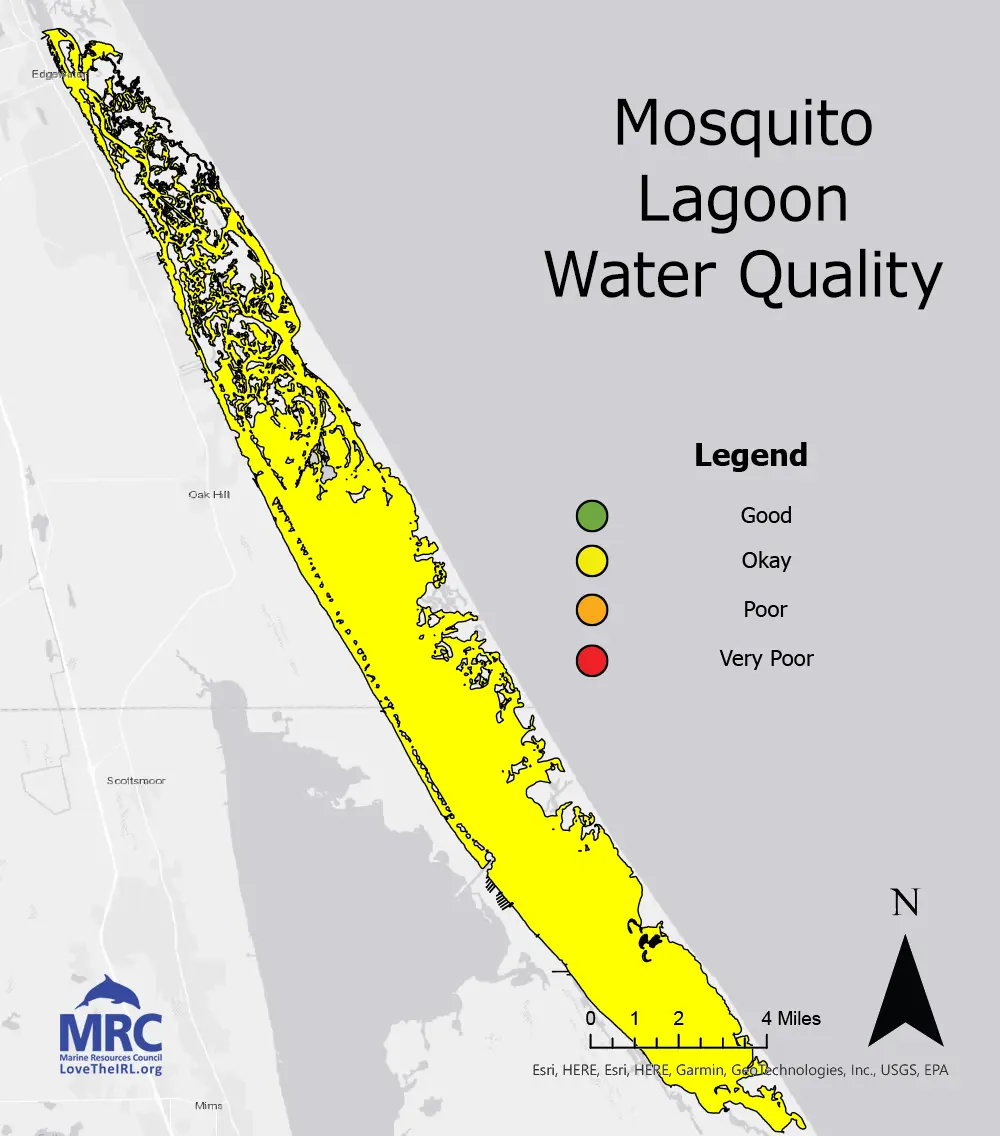Mosquito Lagoon
The 2024 health assessment for the Mosquito Lagoon is “good”— meaning the health improved in 2024. Mosquito Lagoon is the only basin to receive this assessment. Though the five health indicators vary across the basin, they indicate where there has been substantial improvement since 2023. There were few wastewater spills and no harmful algal blooms; Mosquito Lagoon was one of only two basins earning a “good” for low harmful algae concentrations. While water quality was “okay”, seagrass significantly increased in 2024 compared to 2023. Unfortunately, no sediment health data are available for Mosquito Lagoon.
Harmful Algal Blooms
From August 1, 2023 to August 1, 2024, the Mosquito Lagoon experienced no harmful algal bloom events. The median value of chlorophyll-a concentration in the basin for the year was 3.4 ug/L and an average concentration value of 5.0 ug/L. This earns a “good” assessment of HABs for the Mosquito Lagoon.
Seagrass Coverage
Compared to 2023 seagrass coverage, the Mosquito Lagoon earned a “better” assessment for 2024 coverage due to a significant increase in seagrass in the basin.
Sediment Health
No sediment data are available for the Mosquito Lagoon. Sediment quality studies are an area where we need to expand research efforts to inform Lagoon health and restoration projects. Future studies may be able to address how sediment health relates to seagrass growth in this basin.
Wastewater Spills
From 2023 to 2024, there were three wastewater spills that affected the MRL watershed and none of them released directly into the Mosquito Lagoon.
Water Quality
Water quality in the Mosquito Lagoon averaged an “okay” for 2024. The health indicator assessment is based on averaging the pH, turbidity, total nitrogen, total phosphorus, dissolved oxygen, and chlorophyll-a values in the basin. The Mosquito Lagoon received a “good” for pH, dissolved oxygen and chlorophyll-a concentration, an “okay” for turbidity and total phosphorus, and a “poor” for total nitrogen.
Your Financial Support Makes It Happen!
Donate to become an Annual Member Today!
Marine Resources Council (MRC) coordinates Lagoon-wide efforts to Save the Indian River Lagoon, but we need your support to succeed. It will take a community to save the Lagoon, working at all levels.
MRC is holding government workshops, coordinating diverse stakeholder groups, showcasing community leaders, and working with businesses and individuals to encourage actions that will help save the Indian River Lagoon.
This website is managed by the Marine Resources Council, a 501(c)(3) nonprofit organization that has been dedicated to protecting and restoring the Indian River Lagoon since 1983.
Marine Resources Council • 3275 Dixie Hwy NE, Palm Bay, FL 32905.
Site development by Editype.
